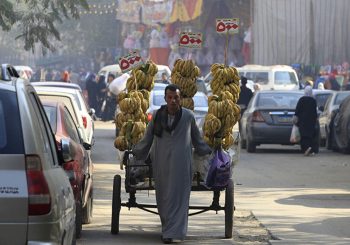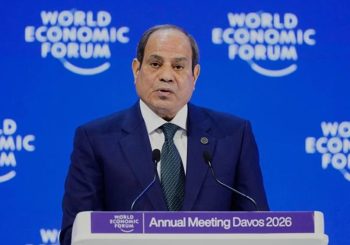Having witnessed tension over the past few days, Turkey decided to further escalate the unrest with the Netherlands after the latter had prohibited two Turkish ministers from rallying to gather support for the upcoming Turkish referendum.
Turkey decided to halt any diplomatic connections between the two countries, including preventing diplomatic and political delegations from entering Turkey. The diplomatic ties between the two countries are now suspended.
Turkey’s referendum ignited the tension
A constitutional referendum in Turkey is set to be held on April 16, it will expand the presidential power to the Turkish President Recep Tayyip Erdogan. The referendum would change Turkey from a parliamentary system to a presidential republic.
If Turkish people voted “Yes” on the referendum, the Turkish president will be allowed to appoint ministers and prepare budgets along with other major powers. The president will solely have the power to announce a state of emergency and dismiss the parliament.
Turkey has about 5.5 million expatriates and their votes will be counted in the referendum. With about 1.1 million eligible voters living in Germany and thousands living in Austria and the Netherlands, those in favour of “Yes” want to attract these expats by campaigning in the European countries.
Europe ‘Not Happy’ with Yes campaigns
Following the failed coup of the Turkish military in July 2016, Erdogan has severely cracked down on dissidents. Thousands have been arrested and dismissed from their positions for allegedly cooperating with the coup organisers.
The crackdown that sparked accusations of human rights violations didn’t appeal to several European countries, particularly Germany.
In order to obtain more powers and tighten his grip on Turkey, Erdogan decided to proceed with the new referendum, and Turkish officials would go to Turkish embassies abroad to campaign for “Yes”.
How did European countries react to Turkey rallying to gather support?
Having the largest number of Turkish Diaspora in Europe, Germany was naturally the first country that Turkey decided to start with. While Germany closed down the place where the speech of the Turkish Foreign Minister Mevlut Cavusoglu was supposed to be delivered, he decided that the gathering will be held and the speech will be delivered anyway. He told the press that he is going to Germany and no one can stop him.
After Germany banned the protest permits and didn’t allow the Turkish diaspora to gather, Erdogan described their act as a “Fascist acts”. Erdogan went on to say that Germany is supporting terrorism, even though Germany claimed that the gatherings were stopped due to security concerns.
Following Germany, Cavusoglu opted for the Netherlands that has the third largest Turkish Diaspora after Germany and the United Kingdom (UK), it has about 500,000 eligible voters. However, the Netherlands said that the gatherings may not be held due to security concerns as well.
Meanwhile, head of the far-right political Deutsch Party for Freedom Geert Wilders announced that he filed a motion to organise an anti-protest in front of the Turkish embassy to condemn the supporting one. He filed the motion prior to the arrival of Cavusoglu. Wilders previously demanded to announce Turkish officials as persona non grata until the referendum concluded.
Dutch Foreign Minister Bert Koenders also explicitly announced that the visit of Cavusoglu is not welcomed. The Dutch government didn’t allow the plane of the Turkish Foreign Minister to land on the Dutch territories. Cavusoglu had to go and rally in France instead as he wasn’t allowed to land in the Netherlands. The Turkish minister of Family and Social Policies attempted to reach the Turkish rally in front of her embassy that Cavusoglu was banned from attending. However, she was detained by the Dutch police forces and deported to Germany. The protests were violently dispersed.
Erdogan announced that Turkey will ban all Dutch politicians from entering Turkey after what had happened with Cavusoglu, further describing them as “Fascists and Nazi remnants”.
The tension was not limited to Germany and the Netherlands, Erdogan’s comments received backlash from Austria, Denmark and Sweden that severely condemned Erdogan’s “Nazi remnants” comments.
The Netherlands and Austria are explicit in their opposition for Turkey to join the European Union. They further demanded that discussions concerning Turkey’s joining to the EU be halted after the failed coup and its aftermath.







Comments (0)